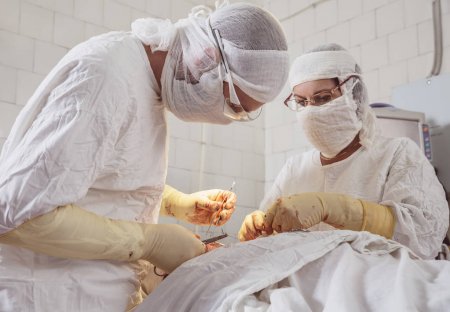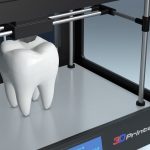When Oral Surgery Is Necessary
Oral health is undeniably important. Serious problems with oral health can lead to things like tooth loss, cancers of the mouth and throat, heart attacks, and diseases throughout the body.
Fortunately, keeping the mouth healthy isn’t extremely difficult.
- Brush at least twice a day. Brush when you wake up and before you go to sleep. Brush again at lunchtime if possible.
- Floss each night before bed.
- Do a dental check-up twice a year.
- Avoid smoking and excessive sugar consumption.
- Drink plenty of water.
Following the above 5 steps should be enough for most people to have a lifetime of healthy teeth.
Sometimes however, you have a dental emergency, and surgery is the only option.
Common Types of Oral Surgery
- Wisdom Teeth Removal
- Gum Graft (gum tissue is harvested from the mouth and added to places where the gums are receding)
- Maxillofacial Surgery (repair after damage/trauma and cosmetic surgery)
- Root Canal (repairing/saving a badly decayed or infected tooth)
How to Know if You Need Oral Surgery
Oral surgery is usually performed by someone whose expertise in surgical medical procedures for the mouth and surrounding areas goes beyond that of a dentist. As you might guess, these professionals are called oral, or maxillofacial, surgeons.
The best way to know if you need an oral surgeon is by visiting your dentist. Unless you are a trained doctor/surgeon/dentist, it’s rarely possible to know if you need oral surgery. Exceptions to this include serious injuries or advanced untreated diseases and infections.
A dentist will know best, including when something is in need of attention from an oral surgeon or other trained oral health professional. If you aren’t sure about whether you need oral surgery yourself, send us a message. Dr. Peter Ku, based in Fort Worth, is an award-winning dentist, and we will be happy to assist you in your oral health queries. If you think it’s an emergency, don’t wait to get in contact with a professional.
Specific Reasons to get Oral Surgery
So you’ve talked with a dentist, maybe had a check-up, and it’s been decided surgery is right for you. Here is a list of some common reasons a surgical procedure may be necessary:
Impacted Tooth
This is most commonly done on wisdom teeth. An impacted tooth is a tooth that has not fully erupted (exposed itself in the mouth by coming through the gums). The crowding of non-erupted teeth in the gums requires surgery to remove.
Tooth Implants
A missing tooth can be replaced with an implant. After a surgeon puts the implant in your jaw, the dentist can attach a crown (covering for the implant).
Cancer Treatment
The surgical removal of oral cancer sores is an important reason to have a procedure done. The cancer cells might not be only in the mouth, but also in the larynx, neck, face, sinuses, lips, throat, or esophagus.
Joint Problems with the Jaw
When your mandibular joint (jaw joint) has pain while moving or popping noises, surgery might be necessary to fix it.
Severe Overbite/Underbite
If the misalignment of the jaw is serious enough to threaten health, then surgery might be necessary.
Breathing Issues
If a problem in the mouth is causing breathing issues, surgery can help the patient breath normally. This is especially necessary in the case of sleep-related breathing issues. Sleep apnea and breathing problems can cause enormous health problems over time, and surgery can remove blockages.
Genetic Health Risks and Deformities
Cleft palate and other deformities can lead to large health risks as a person ages. For these reasons, surgery is often performed to ensure greater over all health.
Lesion/Sore Removal
Precancerous sores can be removed surgically in order to prevent further growth.
Trauma/Injury Repairs
A car accident, fall, or otherwise severe physical damage to the face, mouth, or neck often requires corrective surgery.
Cosmetic Surgery
Also known as plastic surgery, cosmetic surgery isn’t just for looks. It can be damage repair (as mentioned above), or a corrective procedure for genetic defects or deformities.
COVID-19 Note
Many dental offices are not performing unnecessary surgical procedures currently. The ongoing pandemic has put a stop to many elective procedures, as they present high disease transmission risks. Read more about the latest in surgical approaches during COVID-19 here. Be sure to stay on top of what you can do in your area.






